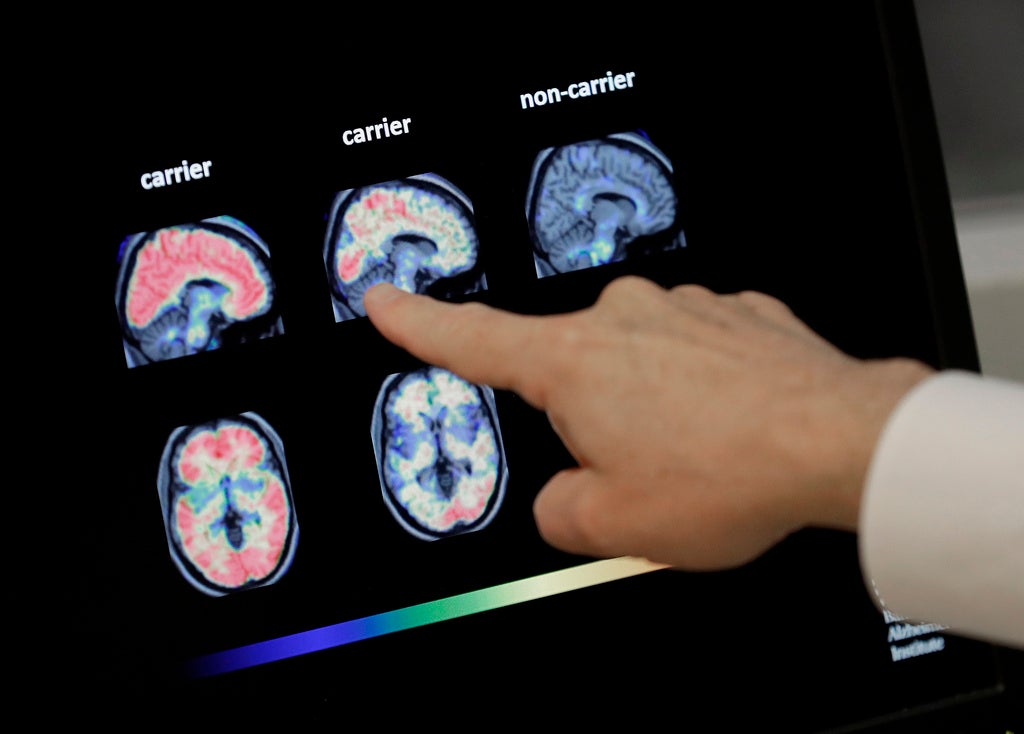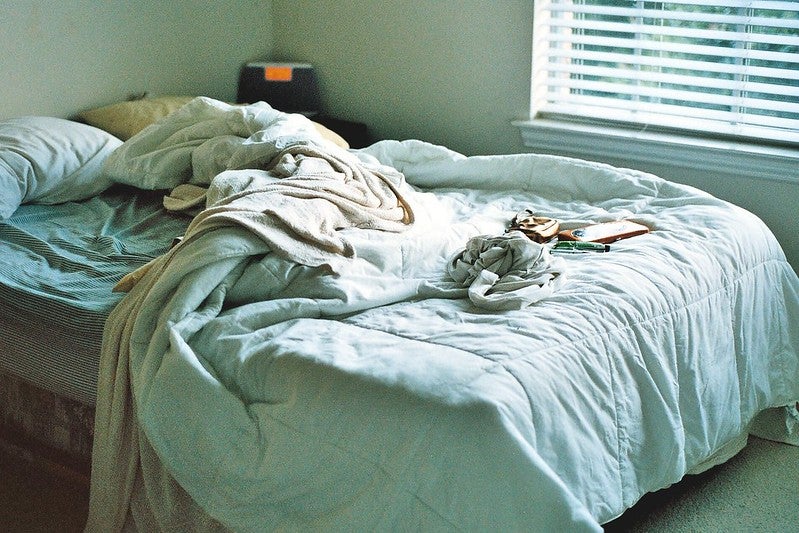Dreams come and go much of the night while we’re asleep. Those strange flickering scenes of places that don’t exist and things that haven’t happened mostly disappear as soon as we wake up.
But psychologist Rubin Naiman thinks that if we value our mental and physical health, we should pay more attention to our dreams — especially the big ones.
“A big dream — we all have them — is a dream that you’ll never forget,” said Naiman, speaking with Anne Strainchamps for “To The Best Of Our Knowledge.” “For example, I had this dream some years ago, a few weeks after my father passed away.”
Stay informed on the latest news
Sign up for WPR’s email newsletter.
“I was in an airport terminal and I was being chased by a man in a trench coat. I thought he was a Russian spy and he wanted to kill me.”
In Naiman’s dream — a nightmare, really — he tried hiding in a bathroom, but the figure followed and held a gun to his head.
“I turn around and I look at his face and it’s my father. He reaches over and opens a bathroom stall, which is filled from the floor to ceiling with chicken manure,” he said. “And he says to me, ‘Put that in your pipe and smoke it.’”
In dream interpretation, Naiman says, manure has a specific meaning — he describes it as nigredo, a black primal alchemical substance associated with new growth.
“What I got was, he was cognizant that I was carrying a lot of stuff psychologically,” said Naiman, “I needed to transform some of the darkness in my life.”
Naiman worries that psychologists have stopped paying attention to dreams. More importantly, though, he worries that people aren’t dreaming enough. An epidemic of insomnia, coupled with a rise in the use of REM-suppressant drugs, has turned us into what he calls a “wake-centric culture.”
This transcript has been edited for clarity and length.
AS: In the past, you’ve said, “We are in the midst of a silent epidemic of REM sleep deprivation. Our culture isn’t dreaming enough.” Would you still say the same today?
RN: Oh, absolutely. Yeah. We are in the midst of a silent epidemic of dream loss. And in fact, it may well be that most of what we consider sleep loss is actually dream loss. The reason for that is most insomnia occurs in the last part of the night, and that’s when we’re doing most of our dreaming.
The bottom line is that dreaming is an antidepressant. People who dream well are less depressed and they’re less anxious during the day.
Rubin Naiman
AS: There’s so much medical concern about America’s sleep problems. The CDC says 1 out of 3 of us aren’t sleeping enough. But the risks listed are things like heart disease, obesity and early aging. You never see “dream loss” on that list. Why not?
RN: That’s a great question. Sleep medicine has done a tremendous amount in teaching us about sleep. But if you have an evaluation by a sleep doctor, they will rarely ask you about your dreaming. And I think one of the reasons for that is a discomfort with the unconscious.
The ramifications of dream loss are pretty profound. You mentioned cardiovascular problems — there are also problems with memory associated with dream loss. And also mood disorders, because we know that dreaming downregulates negative emotion. In fact, Rosalyn Cartwright, who was a renowned dream researcher, made the point that dreaming is a kind of endogenous psychotherapy.
There are some fascinating parallels between what goes on in good psychotherapy and what goes on in the dreaming brain or the dreaming psyche at night. The bottom line is that dreaming is an antidepressant. People who dream well are less depressed and they’re less anxious during the day.
AS: On the other hand, many neuroscientists seem to consider dreaming a relatively meaningless side effect of REM sleep — a kind of brain hiccup. You think dreaming actually has a physiological purpose?
RN: Physiological, yes. Along with an even more important psychological, and for lack of a better term, psychospiritual purpose.
You know, the backdrop to this is that when we downplay the role of dreaming — and we’ve done that for a long time — what happens is that waking dominates. And we are wake-centric. We believe waking is the gold standard for consciousness. But if you have waking that is not modulated or tempered in a rhythmic fashion by sleep and dreams, it’s runaway.
We are, as a culture, hyper-aroused. This is sort of hidden in plain view. I was just in California — I used to live there and I love it. But, you know, you can’t not speed on the freeway because everybody is going above the speed limit. And I think that’s true about the psychological pace of life too — we’re a hyper-aroused culture.
I think that when we dream and when we share dreams and connect with other dreamers, it takes us to a place of recognizing a deeper commonality among all of us. A deeper humanity.
Rubin Naiman
AS: You’ve said there’s evidence that dreaming downregulates negative emotion. And yet, a lot of the medications that people take for depression, notably SSRIs, suppress dreams, am I right?
RN: Antidepressants and anti-anxiety agents both suppress dreaming. There are roughly 30 million Americans using each of those. Anticholinergics also suppress dreaming. So does alcohol use disorder, which accounts for another 30 million people. When you total all of that, we’re looking at tens and tens of millions of people who have compromised dreaming at night.
AS: I know you’re working on methods for dream hygiene — ways to improve our dream lives. I imagine some of those could benefit anyone, whether they’re taking SSRIs or not. What are some of the things you’d suggest?
RN: First on the list, not surprisingly, is that we have to sleep well in order to dream well. And more important than the total number of hours you sleep is having regularity in your sleep schedule.
Looking at any ways you can replace REM suppressant agents is important. And if you can’t, I think developing a personal relationship with the dreaming part of oneself is important. That may involve some dream journaling, or maybe joining a dream group.
I’ve run a lot of dream groups over the years and it’s fascinating. When people come together, almost always, in a matter of two or three months, somebody will start to talk about a dream that they had mentioned to the group weeks earlier. And someone else will chime in and say, “Hey, by the way, excuse me. That was my dream.” And it sounds a tad psychotic, doesn’t it? But there is something beautiful that happens around empathy.
So when you look at dreaming itself, when we are in a dream, we become a lot more permeable. I can be me in the dream and I can be you, right? Independently of whatever we dream about, that experience of dreaming is a practice of greater empathy. And it appears to be carried into waking life. We have data on participants in dream groups, and we know that listening to each other’s dreams increases empathy.
So back to the question of the impact on culture. We’re in a pretty divisive time nowadays, and we look at it as being primarily political, which is how it manifests. But I think that when we dream and when we share dreams and connect with other dreamers, it takes us to a place of recognizing a deeper commonality among all of us. A deeper humanity. It’s hard to define, but it’s consciousness, you know?





